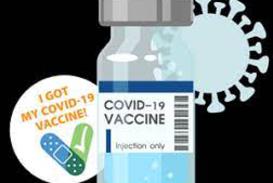Healthcare Medical Pharmaceutical Directory.com
Group Purchasing Organizations - GPOs
Business Trends:
- GPOs must deliver more value in medical purchasing, finance and supply chain proficiencies; their clients seek new buying and contracting arrangements plus Amazon continues to forge a position in the healthcare industry
- Drastic purchasing shifts in PPE, drug and other product categories will continue to challenge GPO clients in 2021
- Scroll down for healthcare business planning insights plus GPO marketing and sales strategy
Healthcare and Medical Group Purchasing Organization Market Sector Overview
GPOs, like the rest of the healthcare industry, answer to various regulatory agencies including the Office of the Inspector General (OIG) and General Accounting Office (GAO). There are over 600 group purchasing organizations engaging the healthcare industry in the United States; listed here are the market leaders. GPOs are competitively challenged by the increasing strength and IT sophistication of distributors and wholesalers who have formed their own GPOs and specialized purchasing programs designed to reinforce customer loyalty and contract compliance. The pandemic will continue to create disruption and opportunity for GPOs in 2021.
New business models spanning accountable care organizations, integrated delivery networks, satellite clinics, specialized medical centers and other point-of-care changes impact how purchasing, procurement and supply chain administration is conducted. This also includes the largest commercial payer in the nation, UnitedHealth Group, acquiring urgent care, surgical care and other healthcare provider organizations as it expands and diversifies it business model beyond that of health insurance and risk management. 2021 will see more of this activity driven by economic pressures created by the pandemic.
Hospital And Health System Consolidation And Technology Are Impacting GPO Business Practices
The GPO sector is undergoing significant changes. Consolidation is reducing broad-based competition between them. Regionalized/specialized GPOs have been developed focusing on specific sectors of care and the products required within them. Medical suppliers, wholesalers and distributors armed with increasingly sophisticated contract and inventory management software/IT systems, have recognized these niche opportunities as well and selectively engaging them directly as well as via GPO contract arrangements. In the future, digital commercial platforms / e-commerce business models lend themselves readily to comparison shopping, transparent pricing, re-ordering and other attributes which can support or compete with the conventional GPO business model.
Large scale GPO consolidation over the last 5 years includes:
- Acurity acquired by Premier in 2020
- HealthTrust Purchasing Group (HPG) acquired ROI in 2019
- Innovatix acquired by Premier in 2016
The GPO Income Model
GPOs generate income in different ways. They charge healthcare, medical and pharmaceutical manufacturers fees to use their services. What is often overlooked is GPOs likewise charge fees to non-healthcare product manufacturers using their services which sell into the healthcare sector. This includes furniture, computer hardware and software, office supplies, building fixtures, cleaning supplies and thousands of other items acquired by healthcare provider organizations on a daily basis. While the number of products they feature specifically for patient care is vast, the array of items they list for administrative, food service, maintenance repair and operations ( MRO ) and other uses in the healthcare sector are equally significant.
Referred to as “administrative fees” or "admin fees", the charges GPOs assign to these companies are aligned with the purchase price of the item being acquired by the healthcare provider customer. The fee is a percentage of that purchase price; typical range is from 1.2% to 2.3%. GPOs also charge members ( healthcare provider organization customers ) for using theri use their services. Beyond being a pricing and procurement agent, GPOs offer programs to help healthcare organizations with inventory management, compliance, budget forecasting and other clinical and business support services.
GPOs do not take possession of a product from a manufacturer or other source, warehouse it and ship it upon customer purchase request; they orchestrate competitive pricing discounts and associated administrative tasks. Most healthcare organizations use more than one GPO to source products from to take advantage of varying degrees to discounts, product availability and other considerations.
Benefits For Healthcare Provider Organizations To Use GPOs
There are several benefits for hospitals, health systems, medical practice groups, specialty clinics and other healthcare provider organizations to utilize using GPOs.
- The products they list have already been discounted through a bidding process with product manufactures and other source suppliers.
- GPOs have tens of thousands of various items available for purchasing units to procure so have the appeal of being a one-stop-shop.
- Various types of reporting are provided to their members ( as well as to manufacturers, suppliers ) to assist in financial, logistic and other materials management and procurement exercises
- By pre-negotiating discounts with thousands of manufacturers and suppliers in advance, GPOs manage a burden healthcare provider organizations would not be able to undertake on a large scale.
Amazon, Amazon Cloud / Amazon Web Services ( AWS), PillPack and More In Healthcare
Moving forward in 2021 and beyond, Amazon is a paramount concern across multiple healthcare industry sectors for GPOs and drug wholesalers, medical suppliers, healthcare distributors and other supply chain trade relations partners. Their e-commerce, digital marketing, customer engagement and supply chain attributes are proven assets. Amazon already carries a substantial variety of conventional consumer healthcare products and has quietly built up a significantly large portfolio of medical practice products, durable medical equipment, laboratory diagnostics and other clinical instrumentation.
For now Amazon Business has somewhat tempered its entry into the healthcare sector as a major trade partner for hospitals, health systems, surgery centers and large medical practice groups. One challenge is they will not wholly switch to an entirely new supply partner such as Amazon as any interruption in product supply, cost disadvantages or other issues could be clinically and commercially disruptive for them. GPOs, existing supply chain partners and healthcare providers have longstanding, contracted relationships. Amazon may can gradually scale up and erode the strongholds of existing supply chain partners until they accumulate enough market penetration and demonstrate reliability as a supplier to assume larger positions with customers.
Given their track record of successfully entering "set in their ways" well-established market sectors and re-writing the rules of engagement, GPOs are understandably concerned at the potential impact Amazon may have as a competitor. As their healthcare strategy unfolds, Amazon has deep potential to disrupt and reset how healthcare provider organizations have traditionally contracted and procured product from supply chain and manufacturer organizations.
Hospital, Health System, Medical Group Practice Consolidation
One of the major challenges facing GPOs are the mergers and acquisitions underway across numerous healthcare sectors. This creates several issues. One is the larger each individual becomes, the more bargaining they have on GPOs to deliver a higher level of service and deeper price discounts. A second issue is the ability to generate more revenue through a greater variety of arrangements due to more customer account opportunities.
As provider organizations combine, the GPOs are not able to take advantage of different business arrangements that may provide more income than others. One major concern is the aspects of a GPO losing an account and having less accounts available for them to fill the gap. Finally, as larger customer accounts grow, they become more complex. While their volume rises, financial, utilization, distribution and other data reporting needs multiply and GPOs need to be able to support these customer needs which also drive their own business requirements.
GPOs Not Immune To Demands For Financial Transparency In The Healthcare Sector
The healthcare industry is awash in rebate contract arrangements. PBMs ( pharmacy benefit management companies ) and pharmaceutical manufacturers have been under fire from customers and government stakeholders for years regarding rebate practices. The call for greater pricing transparency is evolving beyond them into other healthcare sectors such as GPOs. Much of the GPO business model is centered on collecting fees from their clients, gaining discounts from manufacturers or suppliers then issuing rebates based on sales volume through their contracts with customers. As customer accounts get larger based on industry consolidation while payer influence and government regulation grows, the GPO discounting and rebate business model is getting closer scrutiny and pressured for greater transparency and simplification of their rebate processes.
Moving Forward
For medical device and pharmaceutical manufacturers, GPOs are an important component of market access strategy. Depending upon the product, its availability and competitive position with healthcare provider organizations may be almost completely reliant on its status with one or more GPOs. Once the product has GPO availability, it is still necessary to promote it with healthcare providers both clinically and commercially so medical professionals are aware of its patient care attributes plus its GPO status through their procurement / requisition processes and departments. GPO contracting is an exercise in competitive discounting and being certain it aligns with other market access strategy elements including managed care, PBM and government contracting policies, business plans and compliance requirements.
... As Amazon expands into healthcare, GPOs and their trade business partners may be at risk; read the articles below about Amazon's healthcare marketing initiatives ...
... This profile of the GPO market sector includes clinical and commercial trends; scroll down for the list of the largest Healthcare Group Purchasing Organizations ...
... Group Purchasing Organizations are intertwined through a variety of healthcare entities. For pharmaceutical manufacturers, medical device companies and others, GPOs are part of the access formula to do business with hospitals, health systems, surgery centers, dialysis centers, long term care, assisted living, home infusion. Please see the resources below for market access strategies with GPOs and other industry sectors ...
... This is a list of the leading Healthcare Group Purchasing Organizations listed alphabetically ...
...A healthcare industry business intelligence resource with marketing strategy insights for pharmaceutical and medical device manufacturers, healthcare provider organizations, medical software and technology enterprises, patient care service companies and management consulting firms spanning a global community of users from 50+ nations...


